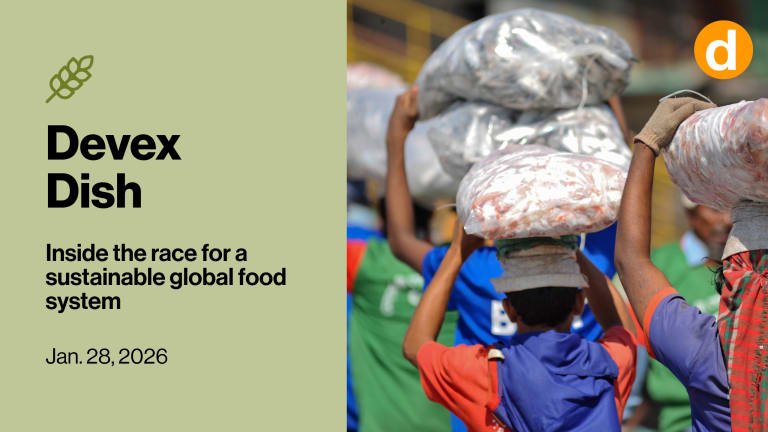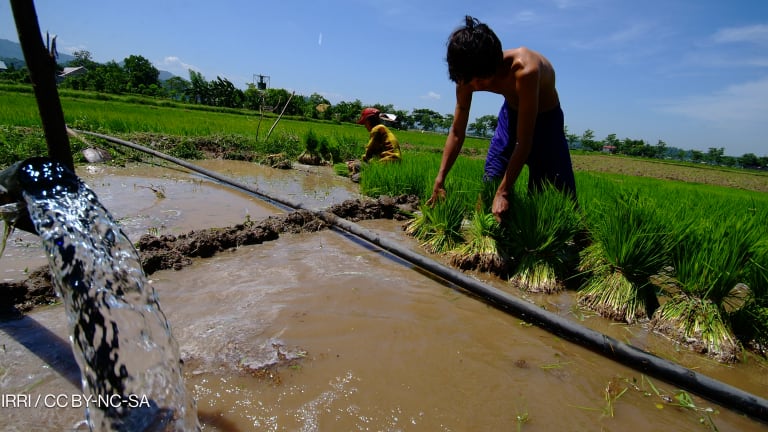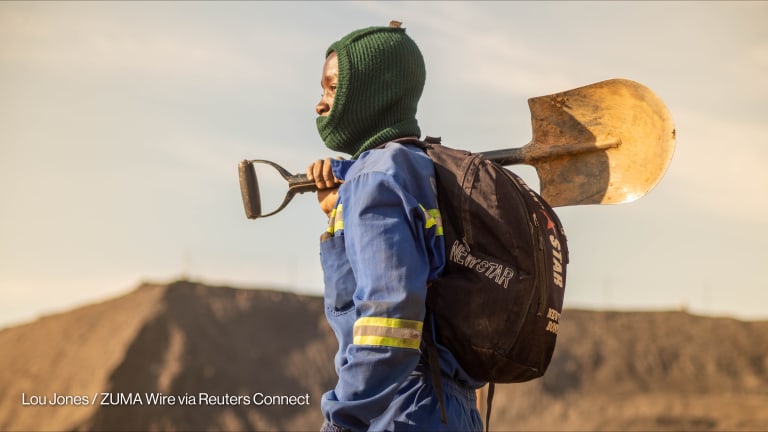
ABIDJAN — While the protracted crisis in northeastern Nigeria seems to be making a turn toward improvement, a wave of militant attacks in 2017 paired with ongoing constraints around limited access to rural areas and slow returns to agriculture and economic activities have impeded humanitarian response and slowed the region’s road to recovery.
The security climate in a region that has been a focus of world attention remains very fluid. Varied strikes on food aid and soft targets, such as open-air markets and mosques, along with incidents of a criminal nature continue to cripple the region.
See more related topics:
► Nigeria Humanitarian Fund aims to streamline emergency funding distribution
► Opinion: Don't let reconstruction in Nigeria become a cliché
Attacks by radical armed group Boko Haram have followed a trend that humanitarian responders have grown to understand, Ghilda Chrabieh, director of humanitarian programs for northeast Nigeria at Mercy Corps, told Devex. “Though these ongoing attacks are unfortunate, this understanding helps actors to define security protocols and how to operate in this insecure environment,” she said.
In recent months, acts of violence — typically suicide bombings — have become more complex, Chrabieh explained. “A suicide bomb will go off, people rush to that location and then another bomb would go off again,” she said.
A recently published Northeast Nigeria Joint Livelihood and Market Recovery Assessment co-authored by Mercy Corps, the United States Agency for International Development, the International Rescue Committee, Oxfam, Action Against Hunger and Catholic Relief Services aggregated the information provided by roughly 3,000 interviewees to understand the opportunities and constraints to agricultural production, examine market dynamics and to determine the opportunities for more effective aid to support recovery efforts.
Addressing food insecurity and returning to trade
Years of insurgency and counterinsurgency operations have resulted in the displacement of an estimated 1.9 million people and sparked a food crisis in Nigeria’s northeast. At the peak of the crisis — and even as recently as last year — worst-affected areas, such as Borno State, were facing famine while other areas faced emergency-level food security conditions and acute malnutrition.
Suicide bombings have destroyed vital infrastructure, limited the mobility of goods and humanitarian responders, and kept agricultural production at an all-time low. Large population movements have also hampered food security for returning refugees and IDPs, and strained the limited food supplies at both IDP camps and within host communities.
Rehabilitation of marketplaces and storage facilities can contribute to food security through increased income-generating opportunities as well as improved food storage, the report explained. Rehabilitation activities may also provide much-needed labor opportunities.
While local populations are returning to their homes, Chrabieh said that it is hard to determine whether these returns are free willed, in order to access humanitarian aid, or forced. Places like Southern Borno State, for example, were highlighted in the report as a “viable environment to resume agriculture.”
Unfortunately, this improvement is not widespread across the region and depends on the context of each particular subregion. Prior to the conflict, northeast Nigeria did more trade across national borders than it did with the rest of Nigeria. But there’s hardly any trade now with other countries as borders are closed. Finding ways to restore these trade linkages will increase income-generating opportunities and food security for the area, the report said.
Nigeria must lead its own humanitarian response and recovery efforts
The report also recommended that the capacity of local actors and systems to improve humanitarian aid delivery be increased, and that would improve the impact of development programs.
“As a presumed wealthy nation, the Nigerian government is supposed to take ownership of the response, whether humanitarian or recovery,” Chrabieh said. “From our perspective the Nigerian civil society, along with local and national governments need to play a major role in facilitating the presence of international actors where necessary, and ensuring the increased access to and protection of the populations.”
But there is an understanding that the conflict won’t be going anywhere anytime soon, Chrabieh argued.
“To better support humanitarian response and begin addressing the resiliency of host communities, we need to look at the causes of the conflict,” she said. “We need to understand why this has happened, how do we avoid this happening again and how do we build communities who are resilient to these stresses.”
Humanitarian response funding to the Northeast region has improved over the years, however.
Initially, very few agencies and donors were invested in the region, and when present, funds were restricted to support a small target population. Since 2014, financial support has greatly improved and increased drastically, Chrabieh said.
Last year, a $25 million Nigerian Humanitarian Fund was announced to help streamline emergency funding distribution there.
While the Nigeria Humanitarian Response Plan is expected to decline from its $1.05 billion appeal of last year, needs remain prevalent in the region. Targeting populations with a combination of humanitarian funding and recovery funding will be the key to ensuring the long-term resiliency of northeast Nigeria.
“There are opportunities for looking at longer-term and sustainable solutions for those who are either returning or remaining where they are for the longer run, and that is where we need to be looking at opportunities per location and try to target the different elements that constitute the recovery of populations whether agriculture or small economic activities,” Chrabieh told Devex.
Read more Devex coverage on Nigeria.
Search for articles
Most Read
- 1
- 2
- 3
- 4
- 5








